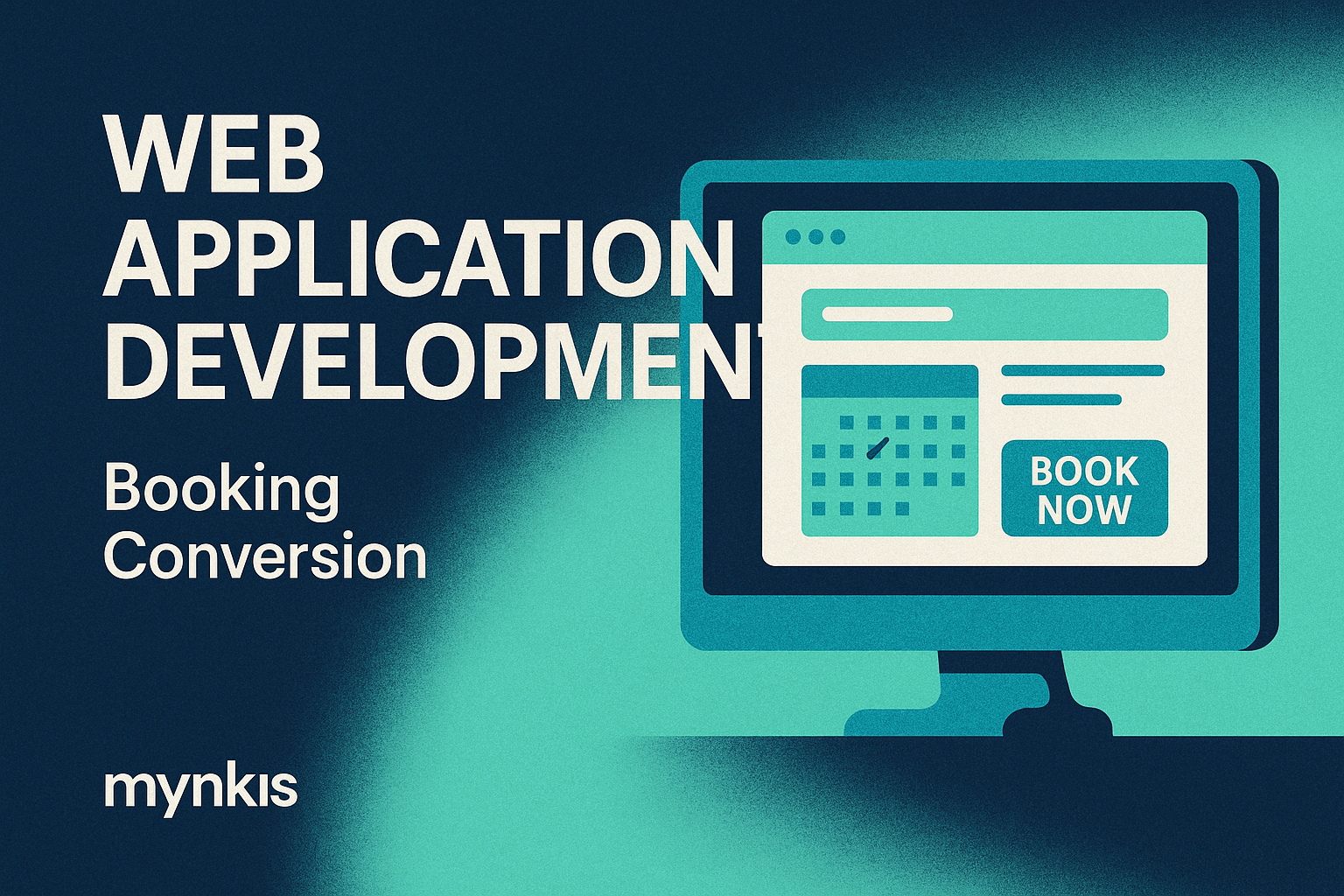Schedule a Demo
In my work with business owners and executives, I've come to understand the critical role that a well-developed web application plays in today's competitive landscape. You’re not just looking for a website; you're seeking a platform that converts. That's where booking-enabled websites come in, bridging the gap between user interest and action seamlessly.
The primary goal is simple yet complex—getting users from browsing to booking. Think of the last time you wanted to schedule an appointment or purchase a service online; if the process was convoluted, chances are you navigated away. A user-friendly booking system, which could be part of your custom software development, not only enhances user experience but also skyrockets your conversion rates.
When designing a website, especially for businesses with an eye on reservations or bookings, every detail counts. The layout, color scheme, and user interface must be aligned with your brand while prioritizing usability. In my experience, users appreciate intuitive navigation and clear calls to action. For instance, studies from the Nielsen Norman Group highlight the importance of visual hierarchy and task flow in improving conversion rates, concepts we leverage in our custom software development process.
It's not enough for your site to look good; it must be discoverable. The foundation of enterprise web solutions today includes robust SEO practices. From optimizing your site's speed to ensuring mobile responsiveness, these are elements that search engines prioritize. In fact, according to Moz, page speed alone can influence your search engine rankings dramatically. Coupled with strategic keyword implementation and content marketing, your booking site can rise in organic search results, naturally attracting more business.
Adapting your web application to provide personalized experiences can significantly elevate user engagement. Imagine a user returning to your site and being greeted with custom suggestions or continuing an interrupted booking. Such personalization, often part of custom software development, makes users feel recognized and valued, which can influence their decision to engage further with your brand.
Incorporating the latest technology trends into your booking system, like AI and machine learning, can offer insightful analytics and automate many processes. While I understand the hesitations around adopting new technologies, the pros often outweigh the cons. For instance, integrating a chatbot could handle preliminary bookings, inquiries, or even help users navigate your services more intuitively, thus enhancing overall user satisfaction and operational efficiency.
While the visual allure of a website can draw users in, it’s the functionality that keeps them there. I've seen clients fall into the trap of prioritizing aesthetics over usability, resulting in sites that, while visually striking, confuse users. The key is finding a harmonious balance, where your web design delights the eye but doesn’t overshadow the main goal—to help users complete their intended tasks effortlessly.
Creating the perfect booking system isn’t a one-and-done deal; it’s about ongoing refinement. From my own projects, I can’t stress enough the value of user feedback. Regularly collecting input and analyzing user data allows you to iterate on your web application continuously, enhancing features and fixing issues, thus ensuring it meets both user expectations and business objectives.
As we delve deeper into the realms of web development, the importance of robust security measures and privacy cannot be overstated. Your customers trust you with their information when they use your booking system. Ensuring data encryption and compliance with regulations like GDPR or CCPA not only protects your users but also reinforces your reputation as a trustworthy service provider.
As your business grows, so too must your web application. Scalability is a crucial factor that’s sometimes overlooked in the early stages of development. What works for a hundred bookings a week may not suffice for a thousand. From my perspective, it’s essential to consider scalability from the onset, creating an infrastructure that can smoothly handle increased traffic and transactions without compromising user experience.
Creating a web application isn't solely about the coding and design; it's also about what content is integrated into it. Content marketing plays a pivotal role in drawing users to your site and keeping them engaged. While enterprise web solutions typically focus on the tech side, marrying this with a well-thought-out content strategy that aligns with your SEO and user engagement goals can have a profound impact on your overall success.
When aiming for a holistic approach in your web application development, consider how all components—design, SEO, content, user experience, and technical abilities—work in synergy. I find that businesses who see their booking system not just as a tool but as an integral part of their customer journey often see the best results. They understand that the user's journey begins long before they click 'book' and continue even after they've used your service.
While the rewards of a successful web application are substantial, so too are the challenges. Budgets, timelines, and the technical complexities of implementing new features can seem daunting. However, I believe that with clear objectives and a well-communicated roadmap, even the most intricate web development projects can proceed smoothly and meet expectations.
Looking to the future, continuous innovation and adaptability are crucial. Industries evolve, and so do the needs of your customers. Thus, the path forward with web application development, and particularly with those aimed at improving booking capabilities, involves constant learning and adaptation. Staying attuned to user needs, embracing new technology, and ensuring your website remains an inviting and efficient tool will secure your business’s place at the forefront of digital transformation.
